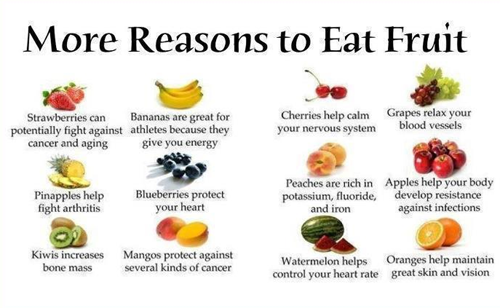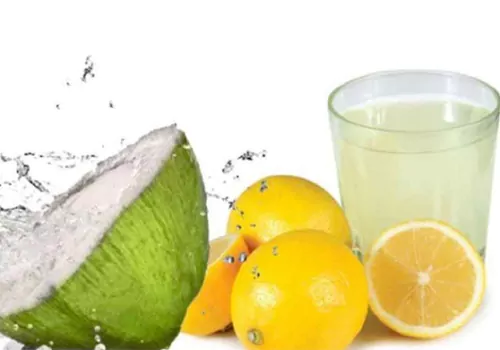Truth about sugar in fruits
posted on Mar 17, 2015 11:09AM

We sometimes hear people dismissing fruits saying they are full of sugar or loaded with carbs
The truth is a fresh fruit offers so much more than the natural sugar it contains – including water, vitamins, minerals, fiber, antioxidants and phytonutrients (those naturally-occurring plant compounds that have wide ranging beneficial effects on the body). Where else can you get a package like that for about 50-75 calories per serving?
Before dismissing foods as being loaded with sugar, or too high in carbs, consider not only the amount of sugar or carbs you are eating in a day, but the form of the carbohydrate, too. There is a big difference between the nutritional value of the natural and complex carbohydrates found in fruits and other plant foods and what’s found (or, more accurately, what’s not found) in the empty calories we eat from added sugars in processed food or carbonated drinks!
Lets take a serving of fruit and see how much sugar are we talking about, as per nutritionist Susan Bowerman. An average orange has only about 12 grams of natural sugar (about 3 teaspoons) and a cup of strawberries has only about 7 grams – that’s less than two teaspoons. And either way, you are also getting 3 grams of fiber, about a full day’s worth of vitamin C, healthy antioxidants and some folic acid and potassium to boot – and it may only cost you about 50 or 60 calories
By contrast, a 20-ounce bottle of cola will set you back about 225 calories and, needless to say, won’t be supplying any antioxidants, vitamins, minerals or fiber. You will just be gulping down some carbonated water, maybe some artificial color and flavor, and somewhere in the neighborhood of 60 grams of added sugar – about 1/3 of a cup. So called diet colas are equal culprits though they claim to be low in calories but loaded with artificial sweeteners that can harm metabolic syndrome of your body.
Learn to Balance your Diet not once a while but daily!
You need to provide enough of the right foods including colorful fruits and vegetables, protein, good carbohydrates and just enough good fats for the taste you want. You also need vitamins, minerals, antioxidants and fiber to provide the nutrition missing from your diet that your cells regularly need for good health, sometimes with usage of with dietary supplements.
-Lavanya
Glow with Health Wellness Solutions










.WEBP)












.webp)




.webp)
.webp)

